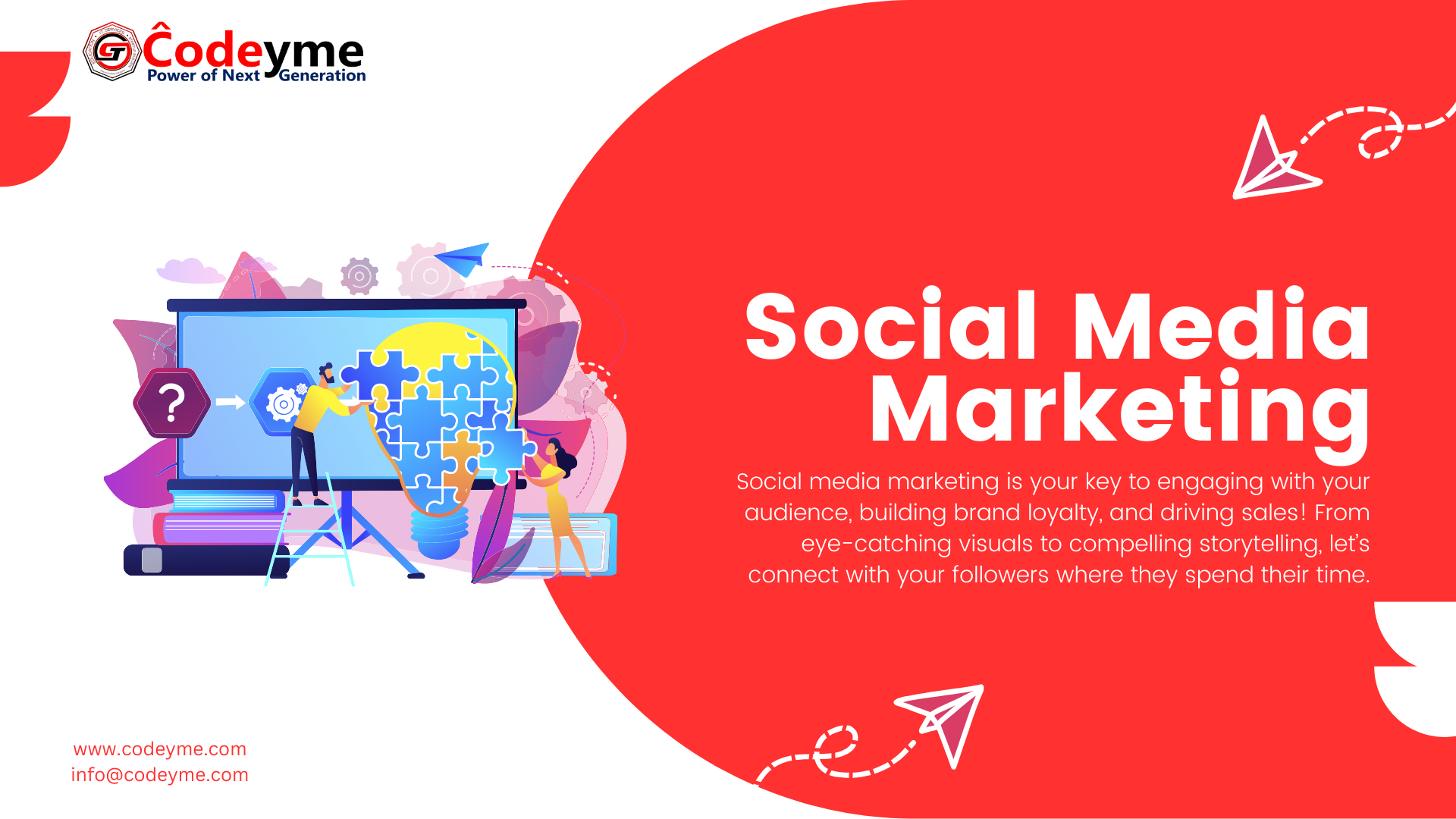Marketers’ top goal with social media marketing is increasing engagement. However, their top challenge is creating content that inspires the engagement they look for.
Since social media plays such an essential top-of-the-funnel role, it’s important to understand how to use the platform to meet your goals.
In this post, we'll dive into all things social media marketing — what it is, its benefits, and how to build a social media marketing strategy that drives the results you want.
What is Social Media marketing?
Social media marketing is the process of creating content for social media platforms to promote your products and/or services, build community with your target audience, and drive traffic to your business. With new features and platforms emerging every day, social media marketing is constantly evolving.
Social media marketing is all about meeting your target audience and customers where they are and as they socially interact with each other and your brand.
While social media marketing is incredibly valuable and beneficial to your business growth (as you'll see in the following section), your strategy will differ based on which social networks your audience spends their time on.
Before we dig deeper into social media marketing, let's segment the strategy by platform
Benefits of social media marketing
1. Increase your brand awareness.
Due to the sheer number of people on social media, you're missing out on the potential to reach thousands, and even millions, if you don't have a presence.
In fact, social media has proven to boost brand awareness by driving up engagement, including things like comments, likes, shares, reposts, and saves.
It also helps you increase brand awareness by directing traffic straight to your site. You can do this by including links to your website and other offers in your profile, bio, and posts.
2. Generate leads and boost conversions
Promoting and sharing your products on social media is a simple way to improve lead generation, boost conversions, and increase sales because you're advertising to people who have opted to engage with you by following your account.
Here are some examples of ways to use social media to generate more leads.
- Create contests for your visitors and followers to participate in on your social media profiles.
- Include links to your website and offers in the bio sections of your profiles.
- Host live videos to announce new products and provide updates or details about exciting news at your company.
- Implement a social media marketing campaign on one of your channels.
- Sell your products through your social profiles. For example, you can enable Facebook's Shop Section or Instagram's Shopping feature on your profiles. These features allow your visitors and followers to click on products you've shared in posts to view price, material, and size information. Then, visitors can easily proceed to checkout through the platform and buy the product directly from you.
If you don't already have a Facebook page for your site, here's how to make one.
Marketers’ top goal with social media marketing is increasing engagement. However, their top challenge is creating content that inspires the engagement they look for.
Since social media plays such an essential top-of-the-funnel role, it’s important to understand how to use the platform to meet your goals.
In this post, we'll dive into all things social media marketing — what it is, its benefits, and how to build a social media marketing strategy that drives the results you want.
What is Social Media marketing?
Social media marketing is the process of creating content for social media platforms to promote your products and/or services, build community with your target audience, and drive traffic to your business. With new features and platforms emerging every day, social media marketing is constantly evolving.
Social media marketing is all about meeting your target audience and customers where they are and as they socially interact with each other and your brand.
While social media marketing is incredibly valuable and beneficial to your business growth (as you'll see in the following section), your strategy will differ based on which social networks your audience spends their time on.
Before we dig deeper into social media marketing, let's segment the strategy by platform
Benefits of social media marketing
1. Increase your brand awareness.
Due to the sheer number of people on social media, you're missing out on the potential to reach thousands, and even millions, if you don't have a presence.
In fact, social media has proven to boost brand awareness by driving up engagement, including things like comments, likes, shares, reposts, and saves.
It also helps you increase brand awareness by directing traffic straight to your site. You can do this by including links to your website and other offers in your profile, bio, and posts.
2. Generate leads and boost conversions
Promoting and sharing your products on social media is a simple way to improve lead generation, boost conversions, and increase sales because you're advertising to people who have opted to engage with you by following your account.
Here are some examples of ways to use social media to generate more leads.
- Create contests for your visitors and followers to participate in on your social media profiles.
- Include links to your website and offers in the bio sections of your profiles.
- Host live videos to announce new products and provide updates or details about exciting news at your company.
- Implement a social media marketing campaign on one of your channels.
- Sell your products through your social profiles. For example, you can enable Facebook's Shop Section or Instagram's Shopping feature on your profiles. These features allow your visitors and followers to click on products you've shared in posts to view price, material, and size information. Then, visitors can easily proceed to checkout through the platform and buy the product directly from you.
If you don't already have a Facebook page for your site, here's how to make one.
3. Foster relationships with your customers.
Connecting and engaging with your social media followers can build lasting relationships between them and your business. You can do this by interacting with them on your posts, responding to their questions and comments, and providing them with any help they may need.
You can also ask your followers questions about your products and their pain points or create giveaways to help you build trust and show them how much you value their input and support.
4. Learn from your competitors.
Social media is a great way to keep tabs on your competitors — whether it's their social media tactics, the products they're promoting, the campaigns they're implementing, or their level of interaction with followers.
Social media allows you to look at what is and isn't working for your competition and, therefore, helps you decide what should or shouldn't change regarding your company's approach.
Lastly, reviewing your competitors' social accounts can help you make sure your marketing stands out and is unique to your brand.
Connecting and engaging with your social media followers can build lasting relationships between them and your business. You can do this by interacting with them on your posts, responding to their questions and comments, and providing them with any help they may need.
You can also ask your followers questions about your products and their pain points or create giveaways to help you build trust and show them how much you value their input and support.
4. Learn from your competitors.
Social media is a great way to keep tabs on your competitors — whether it's their social media tactics, the products they're promoting, the campaigns they're implementing, or their level of interaction with followers.
Social media allows you to look at what is and isn't working for your competition and, therefore, helps you decide what should or shouldn't change regarding your company's approach.
Lastly, reviewing your competitors' social accounts can help you make sure your marketing stands out and is unique to your brand.










